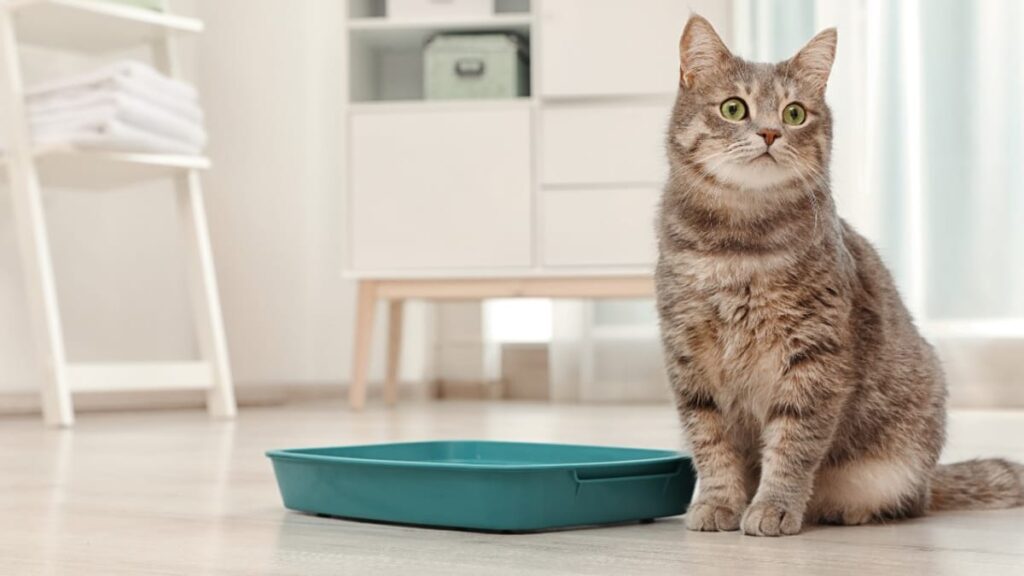An animal native to the desert, the cat drinks little. If we add to this a very dry diet like kibble and a touch of individual predisposition, it can quickly turn into disaster with hyperconcentrated urine, the ideal development medium for crystals and urinary stones in cats.
So how to avoid the formation of these really unpleasant urolithiasis? Follow the advice of veterinary Isabelle Vixège.
Urinary stones in cats: what are they?
A urinary stone is a small one mineral concretion which forms in the urine. It is also called urolithiasis (from the Greek lithos which means “stone”).
It is found at different levels of the urinary system: the kidneys, the ureters (ducts that carry urine formed in the kidneys to the bladder), the bladder or urethra (duct that allows urine to evacuate from the bladder to the outside ).
Urinary stones found in the kidneys are responsible for injuries that can affect the functioning of the kidney. In the bladder they cause repeated cystitis and in the ureters or urethra they are responsible for very serious obstructions such as feline urological syndrome in male cats.
The formation of a urinary stone in cats is favored by concentrated urine supersaturated with minerals. Stones can be composed of different minerals. In cats we mainly find:
- Struvite (phosphate-ammonia-magnesium), about 40% of cat stones;
- Calcium oxalates, about 60% of feline urolithiasis.
The appearance of urinary stones in cats is linked to various predisposing factors:
- Poor quality food;
- Lack of hydration
- Overweight and physical inactivity;
- Genetic predisposition.
Symptoms of cat urinary stones
The most common symptoms of feline urinary syndrome (FUS – Feline Urologic Syndrome) is quite evident and consists of urinary tract disorders but sometimes also behavioral disorders, such as:
- hematuria (blood in the urine);
- dysuria (difficult urination);
- stranguria (painful urination);
- pollakiuria (frequent need to urinate);
- periuria (inappropriate urination, that is, done in unsuitable places);
- excessive meowing;
- hyperaggression;
- persistent grooming and licking in the penile and / or perianal area.
If the obstruction is total (characterized by severe abdominal pain), we are facing a real veterinary emergency, to be urgently resolved by means of surgical procedures if catheterization alone fails to unblock the situation.
Urinary stones in cats: the importance of food and water
A quality diet and the right doses of water are essential to prevent urinary stones in cats.
The best diet to prevent urinary stones in cats
A quality cat food must allow the prevention of urolithiasis thanks to a controlled supply of minerals. We generally recommend the following quantities for kibble:
- Magnesium 0.07% -;
- Phosphorus 0.75%;
- Calcium 0.8%.
The industrial veterinary foods are nowadays designed to provide the right dose of minerals and ensure the urinary health of our feline companions.
Low-end croquettes (therefore generally inexpensive) should be avoided.
A quality dry diet, however, may not be enough to prevent stone formation for light drinkers. In fact, only the dilution of the urine allows to significantly reduce the quantity of precursors of the crystals in the latter.
Keep your cat hydrated

Prevention of urinary stones in cats also involves sufficient hydration. To do this you can follow these tips:
- Choose wet food: pates, meatballs and other morsels contain 70 to 80% water (compared to less than 14% of kibble);
- Provide your kitten with a fountain: running water is often very popular with cats;
- Aromatize its water with a little milk or meat juice;
- Wet the croquettes (but the palatability of the food may be reduced);
- Add the zucchini (rich in water and low in calories).
Treatment for urinary stones in cats
Treatment of feline lithiasis can be medico (dissolution of struvite by a special diet) or surgical by removing mineral formations especially in the bladder. This will be the case if the stones are large or composed of calcium oxalate.
To prevent recurrence in cats who have already presented urinalysis, you will need to:
- Favor one specific diet 100% wet “urinary care”. Some foods are designed for urinary health and are calorie-reduced.
- Guarantee one good hydration. Drinking fountains and water points must be placed in different places in the house.
- Guarantee a sufficient exercise through regular exits or an arrangement of space in the house when exits are not possible (scratching posts and / or shelves on the walls).
The effectiveness of the measures implemented to combat urinary stones in cats can be objectified by aurine analysis at your veterinarian’s office (measurement of urinary density and PH).
Crystals and urinary stones are a common pathology among our feline friends. An optimized treatment, especially from the food point of view, helps to prevent its formation and avoid its relapses, for the greater comfort of our little companions!
—
Article written for Todocat.com and:
Isabelle Vixege
Veterinarian doctor

